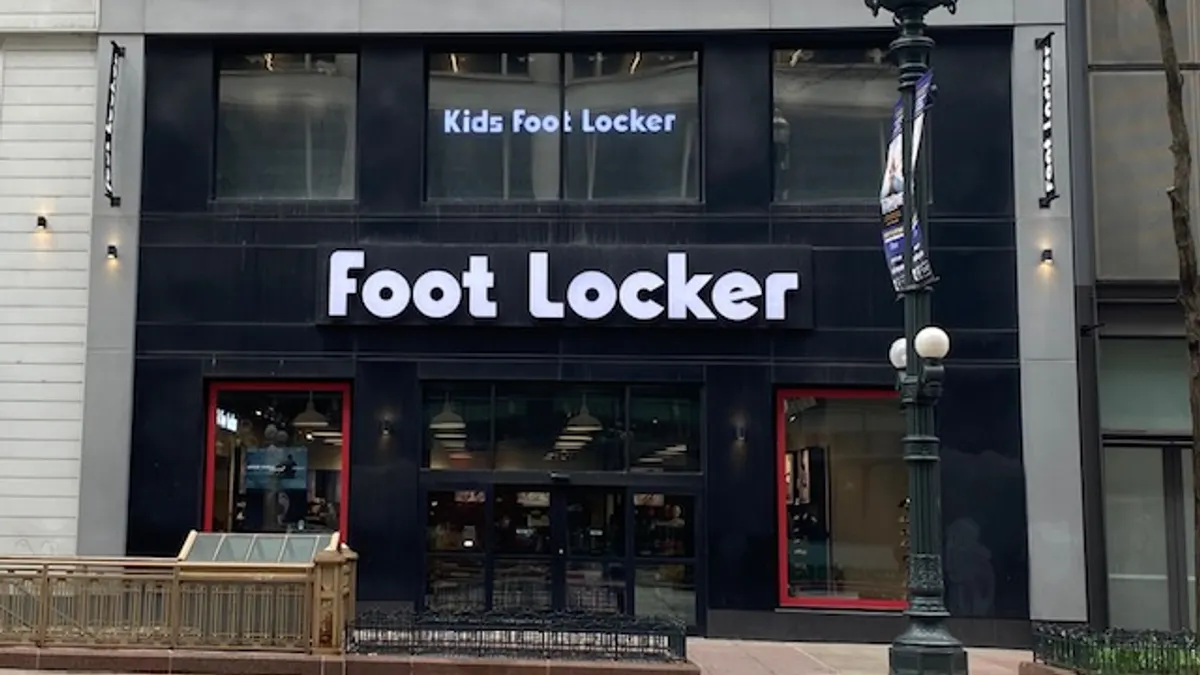Dick’s Sporting Goods and Foot Locker are one step closer to joining forces. A vast majority of Foot Locker’s shareholders on Friday voted to approve its merger with Dick’s Sporting Goods, which is expected to close in the second half of the year.
Although the deal was approved by 99% of Foot Locker’s shareholders, it has received opposition elsewhere, with U.S. Sen. Elizabeth Warren asking the Federal Trade Commission to take a closer look at the deal. The senator said the $2.4 billion acquisition, announced in May, would “decrease competition in the retail athletic footwear markets, cut jobs, raise prices, and leave Americans to foot the bill.”
The deal combines Foot Locker’s roughly 2,400 stores with Dick’s Sporting Goods’ footprint of about 800 and would create a $21 billion business. Foot Locker would continue to operate as a stand-alone business, though the two companies would benefit from a stronger bargaining position with vendors, access to their respective customer bases and a combined base of resources.
"We are now one step closer to joining forces with Dick’s and even better positioning the business to expand sneaker culture, elevate the omnichannel experience for our customers and brand partners, and enhance our position in the industry,” Foot Locker CEO Mary Dillon said in a statement Friday.
The deal is not complete yet, but this moves things closer to the finish line. Should the deal go through, Foot Locker’s shareholders will receive $24 in cash or 0.1168 shares of Dick’s common stock for each share of Foot Locker stock they own.
In addition to the potential benefits of the deal, Dick’s would also then be responsible for carrying on Foot Locker’s turnaround plans. Foot Locker has been in the midst of shuttering stores and revamping others as it handles sales declines and a tough consumer environment.
“The proposed transaction would mean acquiring a structurally challenged, mall-based retailer with 2,410 small-format stores worldwide (~33% of sales are international), a heavy dependence on one brand (~60% of purchases from Nike), and a weak operating margin of 2.5% in 2024 that would be dilutive to Dick’s 11.0% in 2024,” Telsey Advisory Group analysts led by Joe Feldman wrote in a note before the deal was announced.














